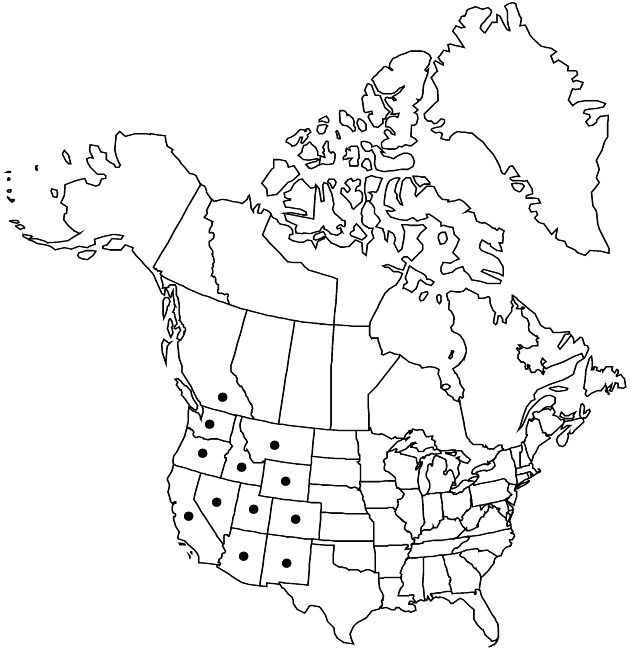Difference between revisions of "Tetradymia canescens"
in A. P. de Candolle and A. L. P. P. de Candolle, Prodr. 6: 440. 1838.
Synonyms: Tetradymia inermis Nuttall
Treatment appears in FNA Volume 20. Treatment on page 630.
FNA>Volume Importer |
FNA>Volume Importer |
(No difference)
| |
Revision as of 18:41, 24 September 2019
Shrubs, 10–80 cm. Stems 1–5+, erect, unarmed, pannose but for floccose or glabrescent streaks. Leaves: primaries lanceolate to spatulate, 5–40 (× 2–6) mm, tomentose to sericeous; secondaries similar, smaller. Heads 3–8. Peduncles 5–25 mm. Involucres turbinate to cylindric, 6–12 mm. Phyllaries 4, oblong to lanceolate. Florets 4; corollas cream to bright yellow, 7–15 mm. Cypselae 3–5 mm, glabrous or hirsute; pappi of 100–150 bristles 6–11 mm. 2n = 60, 62, 90, 120.
Phenology: Flowering spring–fall.
Habitat: Sagebrush scrub, pinyon-juniper woodlands, yellow-pine forests
Elevation: 400–3300 m
Distribution

B.C., Ariz., Calif., Colo., Idaho, Mont., Nev., N.Mex., Oreg., Utah, Wash., Wyo.
Discussion
Selected References
None.
Lower Taxa
None.
